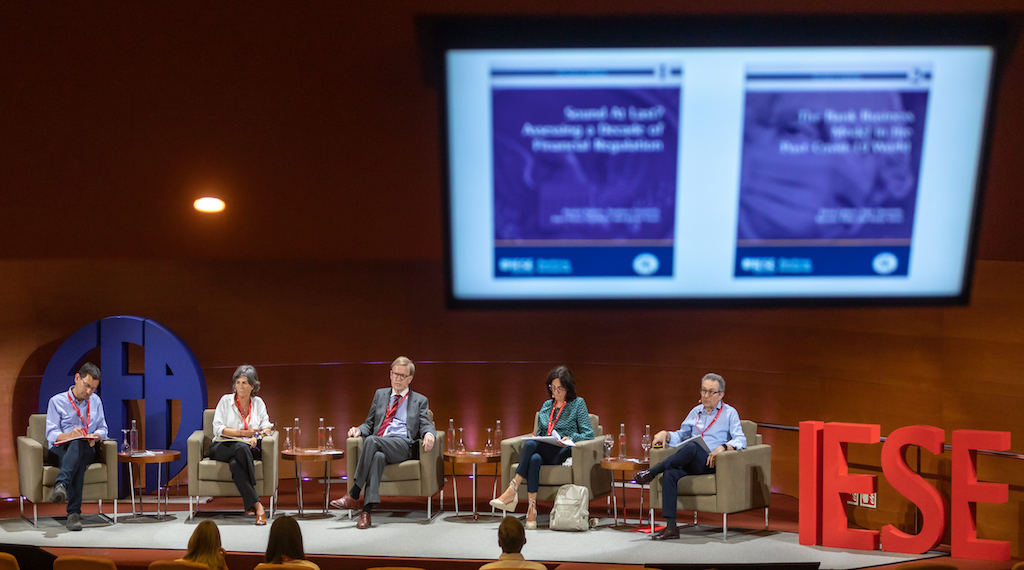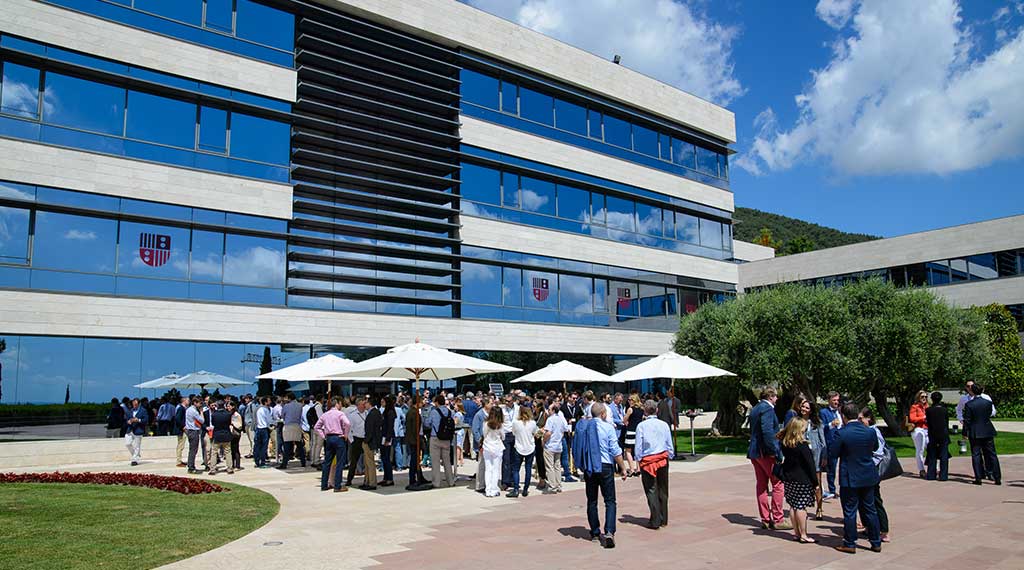Stories
Global experts analyze impact of Ukraine war at IESE
Panel takes place at EFA Annual Meeting, school's largest academic conference to date
Esteemed panelists discussed a conflict of historic proportions.
August 26, 2022

A panel of leading academic experts yesterday discussed the economic and geopolitical implications of the war in Ukraine at the 49th Annual Meeting of the European Finance Association (EFA), held at IESE’s Barcelona campus.
With energy prices and inflation soaring and the threat of recession looming across much of the western world, panelists had plenty of ground to cover.
“Finance is being weaponized, and in Europe, winter is coming,” said session moderator and IESE Prof. Xavier Vives in reference to the broad sanctions imposed on Russia by many continental nations historically dependent on it for energy sources.
A historic moment
Harold James, a professor of history at Princeton University, went so far as to compare the current crisis to that which led to World War I. “It looks like an echo of 1914,” he said. “When a stalemate occurs in what was expected to be a short war, it cannot be solved by military means alone. The thinking now in Russia is that the economic strain will tear the European Union apart and separate it from the US.”
On the flip side, the western alliance in opposition to Russia is gambling that the country cannot withstand for much longer the economic pain brought by sanctions.
“It’s a mutual undermining,” James said, with one consequence being regime change in Russia and another being the fracturing of the presently united front against Russia after upcoming elections in Italy and the US.
Nicolas Véron, a senior fellow at Bruegel and at the Peterson Institute for International Economics, spoke of the war’s impact on global financial systems. “The freezing of Russia’s central bank reserves is actually unprecedented,” he said, “and the breadth of the financial sanctions is quite remarkable.”
The effect of the conflict on financial systems can’t be predicted given the unknown conclusion of the war, but Véron foresees one of two polar opposite consequences: a stabilization following the “extraordinary statement of togetherness by global financial systems” that will leave them stronger and more cohesive or a disruption caused by their politicization.
Intersecting crises
Lucrezia Reichlin, a professor of economics at London Business School, framed her presentation of the war around macroeconomics in the EU. The bloc, she said, “is in a weak position due to being an energy importer and commodity-dependent as well as it not being a federal state with a central energy policy or common army.”
The energy crisis, and its interaction with the climate crisis, is the gravest threat of the Ukraine war. In light of the challenge to the European Green Deal, the “EU should commit even more strongly to net-zero goals,” Reichlin said. “But the short-term problem involves member states moving in different directions.”
Elena Carletti, a professor of economics at Bocconi University, broke down the impact of Russia’s invasion on a banking system that entered the crisis in a position of surprising strength despite the ravages of the pandemic. Threats to the system have emerged through direct exposure to Russia via banking subsidiaries based there and, less consequentially, cross-border exposure.
Spillover effects include cybersecurity risks and the investment needed to fight them as well as energy prices and the need for new energy sources. Regarding the latter, Carletti emphasized the necessity of banks to “finance assets they weren’t financing just three months ago.”
The EFA conference brought nearly 600 participants to IESE Barcelona to discuss the most crucial issues facing the financial sector. The largest academic conference that IESE has organized and hosted, it featured 72 parallel sessions in which more than 1,900 research papers were presented. Organization of the event was spearheaded by IESE’s Banking Initiative, which produces yearly reports on the future of banking, written by leading global experts in the field. The reports, published by the Centre for Economic Policy Research, are available for download.


